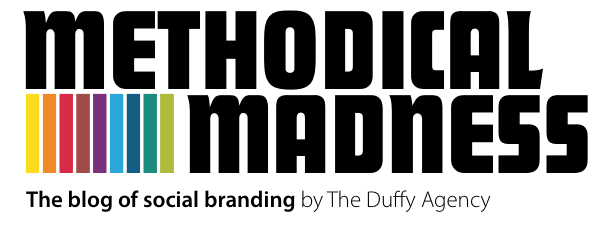Will QR Codes Change the World?
 Friday, November 19, 2010 at 3:00PM
Friday, November 19, 2010 at 3:00PM Links are what makes the Internet the Internet. It's a simple idea and one we all take for granted. Click on a link and go from one area of the Web to another. Now imagine living in a world where the hyperlink is brought out of the online world and applied to the real world.
Quick response (QR) codes, those funny looking square symbols beginning to appear on some goods, are the mechanism that bridge that gap and bring "linking" into the real world.
Originally developed by a subsidiary of Toyota and used to track parts in vehicle manufacturing, QR codes are beginning to pop up more common places. In fact, consumer electronics retailer Best Buy started employing QR codes on their in-store fact tags. Using their smart phones, consumers can scan the QR codes on the fact tags and access a site where they can read consumer reviews, compare features with similar products, and e-mail details to a friend.
There are even some QR readers for smart phones that help you compare the price of the item you are looking at with other retailers. This has the potential for being an amazing resource for consumers and potentially a nightmare for smaller retailers who must now compete on price for virtually everything.
Real estate brokers are starting to put QR codes on signs outside their properties that give home buyers the opportunity to take a virtual tour of a home.
MarketingProfs published a story on Thursday about a Russian company that used QR codes as a scavenger hunt game by embedding the QR symbols throughout Moscow. The event was to promote their energy drink.
However, these applications are just the tip of the iceberg when it comes to using QR codes. In an article posted yesterday in Mashable, some potential uses for a brave new QR world were outlined. Imagine these applications:
Your are sitting in a hotel lobby waiting for your friend. You glance over and see a great looking lamp on the hotel coffee table. Thinking it would look great in your bedroom, you scan the object's QR code with your phone and your instantly brought to a site where you can buy the lamp. If manufacturers QR code everything, then everything can be for sale.
For those particular about the origins of the food they buy, imagine scanning a cantaloupe, for example, to find out when it was picked, where it came in from, and how it was grown (pesticides use, etc.). Something similar is already being done in smartphone-obsessed Japan.
Of course, for QR codes to gain wider acceptance, the availability of the networks they need to run (3G and wireless) has to expand. However, research by Nielsen shows that by 2011 51% of all Americans by will be carrying a smartphone. So the equipment and infrastructure for support of QR coides is developing.
It seems like the uses of the QR codes are only limited to our imaginations. This blogger can envision a day when we can wear special glasses that not only scan bar codes but also employ augmented reality cues to form a new layer of data instantly accessible through the lenses of our glasses. Think the movie The Terminator, but better and with less cyborgs.
What do you think? What are some of the best uses you've seen for QR codes?


Reader Comments (2)
http://www.insarani.com